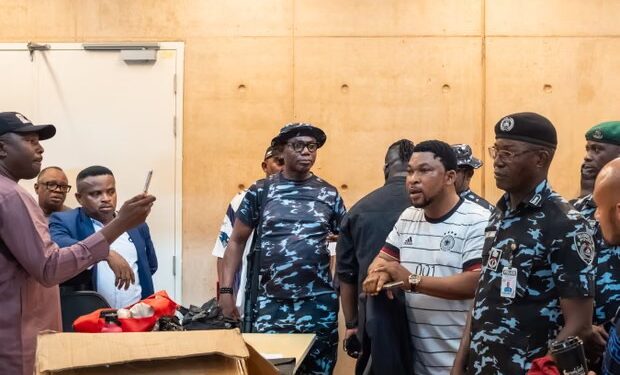A preview event at the Museum of West African Art (MOWAA) in Benin City was disrupted on Sunday as protesters stormed the venue, reigniting tensions over the ownership of the Benin Bronzes looted by British colonial forces in 1897.
Clashes at a cultural landmark
The demonstration occurred during a soft-launch event ahead of the museum’s official opening. Witnesses reported that dozens of protesters, some chanting in support of Oba Ewuare II, the traditional ruler of Benin, entered the premises and forced guests to evacuate. Minor damage was caused to parts of the reception area before local authorities restored order.
The protest centred on the disputed custody of the Benin Bronzes—historic artefacts seized during Britain’s punitive expedition more than a century ago and returned to Nigeria in recent years. Supporters of the Oba insist that the treasures belong in the royal palace rather than in the new museum complex, which they view as a state-controlled institution with foreign influence.
The deeper conflict of heritage and identity
The dispute has its roots in Nigeria’s ongoing efforts to reclaim and repatriate cultural property looted during the colonial era. Over 150 artefacts have been returned from European museums, but the question of where and under whose authority they should be housed remains unresolved.
A 2023 federal decree recognised the Oba of Benin as the custodian of all repatriated Benin Bronzes, a move that has complicated the position of MOWAA—an ambitious project backed by international donors and designed to showcase West African art and history.
Symbolism beyond the museum walls
The confrontation reflects broader tensions between traditional authority and modern state institutions. For many Nigerians, the bronzes are not just cultural objects but symbols of identity, sovereignty and historical justice. The disruption at MOWAA has therefore reignited debate about who has the moral and legal right to represent Nigeria’s cultural heritage on the global stage.
Cultural analysts warn that mishandling the issue could undermine Nigeria’s credibility in future repatriation negotiations and deter international cooperation on heritage restoration.
Risks and prospects
The museum’s management has expressed regret over the incident and reaffirmed its commitment to dialogue with the royal court. Yet, continued unrest could delay the museum’s public opening and strain relations between Edo State authorities and the Benin Kingdom.
If resolved constructively, however, MOWAA could still emerge as a unifying institution—celebrating both the royal legacy and contemporary African creativity while driving tourism and cultural investment in Benin City.
Newshub Editorial in Africa – 2025-11-10



Recent Comments